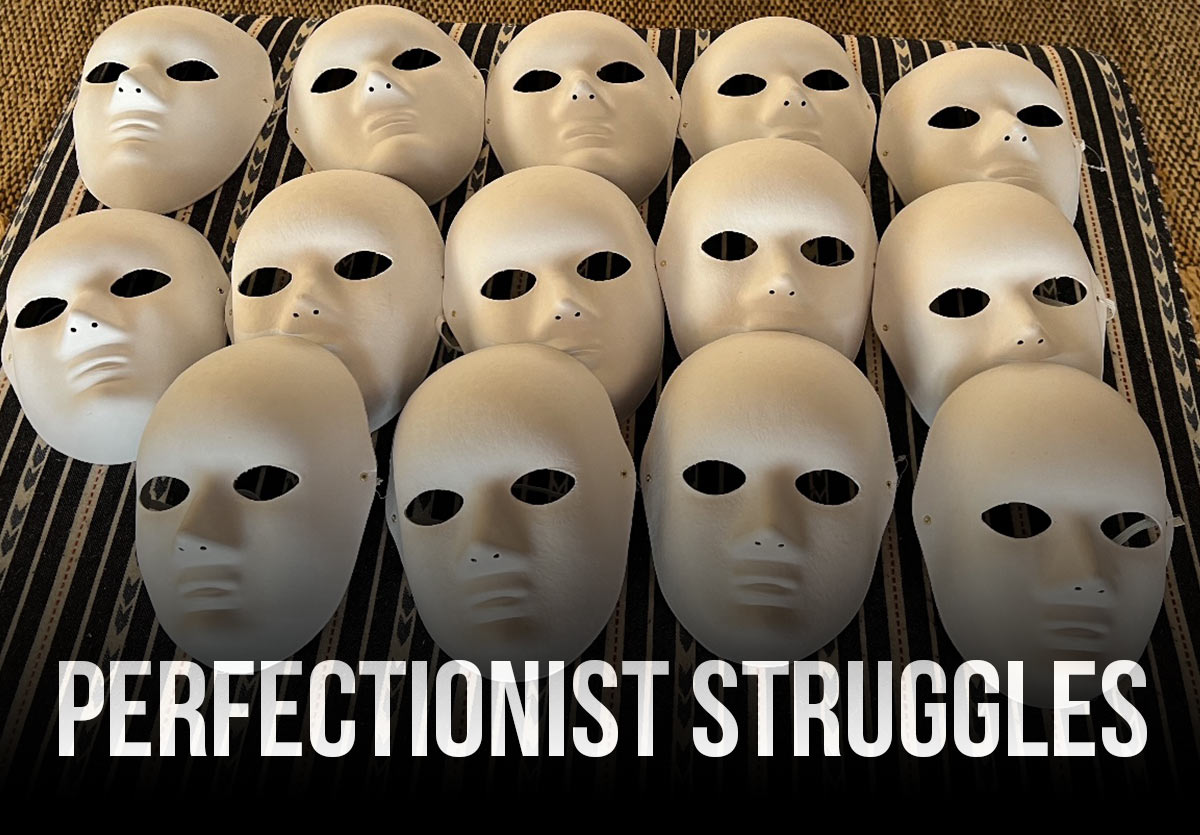How do you pretend?
You might not think you do, but rest assured you will at times, and it’s a very natural response.
At Paseda360 we’ve identified four types of pretender, people pleasers, self persecutors, perfectionists persecutors of others.
This article is focussed on the perfectionist pretender. Lots of articles about perfectionism major on perfectionists being individuals who strive for excellence and have high standards for themselves. This is true of the pretender perfectionist too, but we want you to see that perfectionism is a masking behaviour that sees people avoiding feelings of failure, and/or success, and is underpinned by shaky self-value.
Perfectionist pretenders set ambitious goals and work tirelessly towards achieving them, often putting in more effort and time than most people would. While this quality can be admirable, it often comes with a downside – the inability to acknowledge their achievements.
Perfectionist pretenders are driven by a deep desire to be the best at what they do. The satisfaction they derive from accomplishing a task or achieving a goal is short-lived because their focus immediately shifts to the next thing they need to do.
Have you experienced that?
????You get win an award and feel it for five minutes then move on.
????You finish a project and move straight to the next one without even raising a cheers.
????You get the PB at the gym, and aim higher.
????You get the COO role at work, and immediately think about what’s next.
Nothing is seemingly ever enough for the perfectionist pretender.
It’s as if there’s a judge overseeing every move, waving a big finger. If you acknowledge one of their accomplishments, watch as they brush it off.
The reason perfectionists struggle to acknowledge their wins is that they have an inherent fear of failure. They believe that if they acknowledge their achievements, they will become complacent and lose the drive to keep improving. The thought of losing the drive feels worse when it’s a threat than it would be as a reality.
The fear is often rooted in the belief that their self-value is tied to their accomplishments. They feel that if they don’t continually strive for perfection, they will be seen as inadequate by the judge that exists in their mind. (And by everyone else)
Now what’s fascinating here is that as a coach, when you unmask a perfectionist pretender, they are relieved. The real version of them is exhausted. They don’t want to be perfect. They are done with striving. They didn’t even want the COO Role. They just want to go with the flow and feel less pressure to perform at 150%.
The first step in unmasking a perfectionist is to help them stop and take the time to acknowledge their wins and celebrate their accomplishments. Doing so can help them to see the progress they’ve made, and give themself the validation they seek elsewhere, which in turn brings up the self-value.







